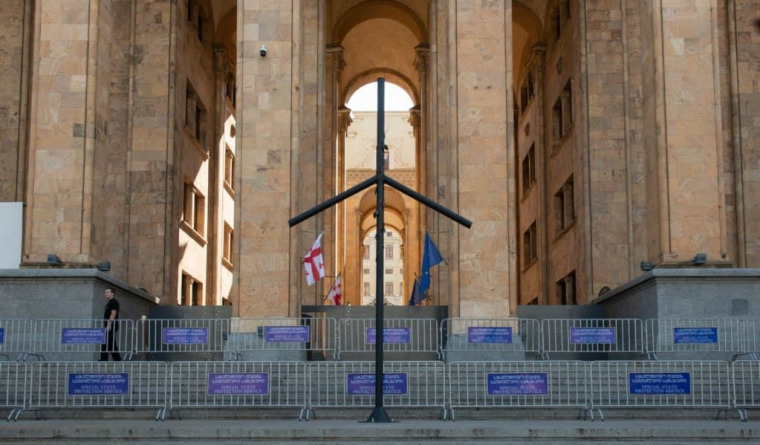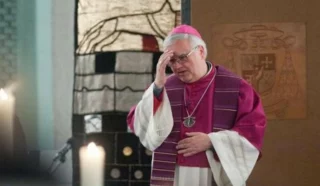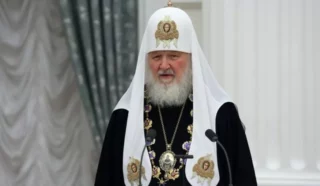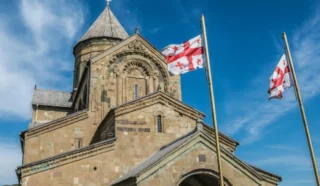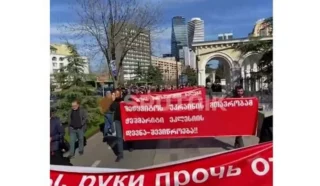The problem we want to write about is generally not new and has been on the surface for several years. It will focus on the spread of propaganda of non-traditional sexual orientation in Orthodox states and how Local Churches can resist this.
As of today, in the canonical territories of almost all Local Orthodox Churches, there is a step-by-step introduction of the so-called non-traditional values, which include everything related to the abbreviation “LGBT”. By the way, these four letters are now so familiar to the eyes of the layman that few people know how to decipher it. We remind that the abbreviation “LGBT” hides four words, namely: “lesbians”, “gay”, “bisexual” and “transgender”. Due to the “evolution” of sexual perversion, this group is now supplemented by several more terms, in general, denoting people of non-traditional sexual orientation.
It is no secret that the “LGBT” movement was especially popularized in the West, in countries whose peoples have never been carriers of Orthodox culture and self-identity. Non-traditional values, as a rule, are especially popular in states with Protestant or Catholic religious content. Orthodox peoples, confident that the governments of their countries are guarding traditional values, 10-15 years ago were firmly convinced that in their cultural space the concept of “tolerance” can only be associated with issues of faith. That is, “religious tolerance”, historically endured in many situations, is a rule of good manners, which in Orthodox states was instilled not only at the constitutional, but also at the subconscious level.
However, now everything has changed. Many once taboo topics have crept into the term “tolerance”, and in the paradigm of world Orthodoxy it is already reaching the point that it is not the Orthodox who tolerate, but the Orthodox who are tolerated. This was confirmed by the recent protests against the holding of a gay pride parade in Georgia, led by the Georgian Orthodox Church. The action provoked by the opposition forces, which eventually grew into a forceful confrontation, almost became the cause of another “color” revolution in the country, which was already in a serious political crisis.
And everything would seem to have ended according to the principle “so it goes”, if not for the fatal case in which LGBT supporters accuse the participants of the protest action against their provocative actions. According to the official version of the Georgian police, the death of TV Pirveli operator Lekso Lashkarava occurred not as a result of his injuries during the confrontation, but as a result of an overdose of drugs. Nevertheless, the “sacred sacrifice” of the upcoming protests had already been outlined, and the supporters of the political opposition, who, in fact, had planned, against the will of the majority of the country’s population, to hold a gay parade in the center of Tbilisi, skillfully took advantage of this moment.
Many political analysts quite accurately noted that the use of Lashkarava’s death in Georgia to ignite protest moods was used on the principle of the BLM action that took shape in the United States a year earlier, which began just after the “murder” of African American George Floyd. The latter, as you know, died while trying to be arrested for selling drugs, being also in a state of drug intoxication. Tellingly, many neo-Protestant “churches”, which are very popular in the United States, immediately recorded Floyd to the “saints”, even comparing him with Jesus Christ. Subsequently, the protests of African Americans turned into pogroms, robberies and outright lawlessness, but the main goal of the BLM movement was, of course, to destabilize the political situation in the country, which ultimately led to the loss of the presidential election to Donald Trump, who was considered a supporter of traditional values. By the way, during BLM rallies it was often possible to meet the rainbow “colors” of LGBT representatives, which actually confirms the fact that any protest exacerbations of such a plan are of an organized nature.
Returning to the topic of Georgia, it should be noted that the Georgian Orthodox Church could not ignore the planned gay pride parade in Tbilisi. Not only because it is a Church, which is at least uncharacteristic of support for such actions, but also because the GOC enjoys great authority in its country. According to the statements of the Prime Minister of Georgia, Irakli Garibashvili, 95% of the country’s population opposed the holding of the Pride in Tbilisi. Therefore, we must understand that of these 95%, a significant part is occupied by the believers of the Georgian Church. They, indeed, became the core of the movement for traditional values, which is why, in fact, the official representatives of the GOC stood on a par with these people. It would be strange if this did not happen.
It was this fact that caused a sharp reaction from the representatives of the “progressive” minority towards the Georgian Church. “This is simply outrageous – the organized criminal group of the GOC has crossed all norms and boundaries.” This is how the “opposition” blogger Tengiz Ablotia formulated his “revelations” about the Georgian Orthodox Church, calling it a “mafia” and “an institution that has strangled Georgia for the last 1600 years.” Ablotia’s article was predictably published on Echo of Caucasus, which is a subdivision of Radio Liberty.
In addition, the oppositionist accused the GOC of organizing protests against the LGBT parade, and at the same time of the economic crisis in the country. The GOC “practically officially organized and led the most shameful pogroms for the country, and politicians are still trying to bypass sharp corners and ignore that it is the patriarchy, and not a stupid and incompetent government, that is the main culprit of the absurdity in which the country has found itself in recent days,” the blogger wrote
However, the gay pride parade in Georgia has been cancelled. The leader of the parliamentary majority Irakli Kobakhidze, commenting on political speculations on this topic, noted: “Political responsibility will fall on those radical groups that oppose the state and the Church. Including those forces that today tried to sabotage the work of parliament. Only they will be politically responsible, including for the disorders that they constantly arrange in our country.” Despite all the protests, the result was achieved, and the opposition is unlikely to even try to hint at a gay pride parade in the near future. Although they are outraged, they have come to terms with the fact that the Georgian people are dominated by church perceptions in relation to any non-traditional values, and even more so to an attack on traditional ones.
Strategically, the Georgian Church made an absolutely right decision when it decided to become the basis of public rejection of the “tolerance” imposed from outside. It is characteristic that the majority of participants in the action in defense of traditional values were dressed in T-shirts with the image of a cross. This indicates that they put a religious context in their protest against the LGBT movement. Even more interesting is that during the days of protests, the traditional Georgian cross of St. Nino was installed by believers right in front of the country’s parliament building. This once again testifies to the fact that not just moral and ethical or political, but specifically Orthodox Christian values have become fundamental in the struggle for the right to be called an Orthodox state, not only formally, but also in essence. It is clear that without the influence of the Georgian Orthodox Church in society, this would not have happened.
Unfortunately, in many other Orthodox countries the situation is radically opposite. As of today, gay pride parades are in full swing in Athens, Nicosia, Belgrade, Sofia, Bucharest and Kyiv. These are the capitals of countries in which the influence of the Orthodox Church is absolute and all-encompassing. The answer to the question “why?” we know perfectly well. However, we still do not have an answer to the question – why the Orthodox Church in these countries does not raise its voice in defense of traditional values?
The reason is that gay pride parades are just a marker, the first test, the result of which will surely show whether it is possible to carry out LGBT propaganda in a particular state. As a rule, if the first gay pride parades in a particular state are successful, the propaganda of non-traditional values gradually develops into open pressure on Christian ideology, the guardians of which remain the Local Orthodox Churches. First, it is about the protection of sex minorities, then about the popularization of their way of life and thought, and later the “witch hunt” begins, in the center of which is the Church.
It is unlikely that any representatives of these Local Churches can say that there is no demand for the protection of traditional values in church society. This is not true. The only problem is that the Orthodox Church, for one reason or another, does not take responsibility to lead such movements. Nevertheless, the experience of the Georgian Church has shown that this is quite possible. Another thing is the ways of expressing one’s position. Unfortunately, now the geographical territories of most Orthodox states resemble some kind of “Orthodox sodom”, in which religious processions are replaced by gay parades.
Serhiy Nazarchuk
